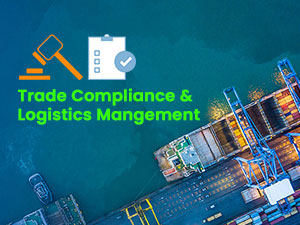Blog Details

Certificate of Origin
What is Certificate of Origin:-
A Certificate of Origin (CO) is an important international trade document that certifies that goods in a particular export shipment are wholly obtained, produced, manufactured or processed in a particular country. They declare the ‘nationality’ of the product and also serve as a declaration by the exporter to satisfy customs or trade requirements. These certificates are essential for exporters to prove where their goods come from and therefore stake their claim to whatever benefits goods of Indian origin may be eligible for in the country of exports.
COs are requested by customs, banks, private stakeholders and importers for several purposes. Almost every country in the world requires CO for customs clearance procedures: when determining the duty that will be assessed on the goods or, in some cases, whether the goods may be legally imported at all.
There are two types of COs that chambers can issue: -
- Non-Preferential COs which certify that the goods are subject to no preferential treatment. These are the main type of COs that chambers can issue and are also known as “Normal COs”.
- Preferential COs, which certify that goods are subject to reduced tariffs or exemptions when they are exported to countries extending these privileges. These COs tend to be closely associated with Regional Trade Agreements.
Preferential arrangement/scheme under which India is receiving tariff preferences for its exports are: -
- Generalised System of Preferences (GSP)
- Global System of Trade Preferences (GSTP)
- SAARC Preferential Trading Agreement (SAPTA)
- Asia-Pacific Trade Agreement (APTA)
- India-Sri Lanka Free Trade Agreement (ISLFTA)
- Indo-Thailand Free Trade Agreement
- India-Malaysia Comprehensive Economic Cooperation Agreement (IMCECA)
- India-Korea Comprehensive Economic Partnership Agreement (CEPA)
- India-Japan Comprehensive Economic Partnership Agreement (IJCEPA)
- Asean-India Free Trade Agreement
These Preferential arrangements/agreements prescribe Rules of Origin which have to be met for exports to be eligible for tariff preference.
Authorised agencies o¬n charging a fee as prescribed by them provides services relating to issue of Certificate of Origin, including details regarding rules of origin, list of items covered by an agreement, extent of tariff preference, verification and certification n of eligibility.
Export Inspection Council (EIC) is agency authorized to print blank certificates.
Generalised System of Preferences (GSP): -
It is a non-contractual instrument by which industrialized (developed) countries unilaterally and based o¬n non-reciprocity extend tariff concessions to developing countries. Presently following countries extend tariff preferences under their GSP Scheme.
Normally Customs of GSP offering countries require information in Form ‘A’ (prescribed for GSP Rules of Origin) duly filled by exporters of beneficiary countries and certified by the authorized agencies.
Global System of Trade Preference (GSTP): -
Under GSTP, tariff concessions are exchanged among developing countries who have signed agreement. Presently 46 countries are members of GSTP and India has exchanged tariff concessions with 12countries o¬n a limited number of products. Export Inspection Council (EIC)is sole agency authorized to issue Certificate of Origin under GSTP.
SAARC Preferential Trading Agreement (SAPTA): -
SAARC members namely India, Pakistan, Nepal, Bhutan, Bangladesh, Sri Lanka and Maldives offering tariff concessions among SAARC countries.
Asia-Pacific Trade Agreement (APTA): -
APTA offers liberalization of tariff and non-tariff barriers in order to expand trade in goods in Economic and Social Commission for Asia and Pacific (ESCAP) region. Presently Bangladesh, Sri Lanka, South Korea, India and China are exchanging tariff concessions under APTA.
India-Sri Lanka Free Trade Agreement (ISLFTA): -
This Free Trade Agreement is between India and Sri Lanka which offers tariff concession by the Governments of both countries. Export Inspection Council is sole agency to issue Certificate of Origin under this agreement.
India Afghanistan Preferential Trade Agreement: -
This preferential trade agreement is between Governments of India and Afghanistan. Export Inspection Council is the sole agency to issue Certificate of Origin under this Agreement.
India – Thailand Frame work Agreement for Free Trade Area: -
India and Thailand have signed protocol to implement Early Harvest Scheme under India-Thailand Free Trade Agreement offering tariff preferences for imports o¬n items of Early Harvest Scheme o¬nly to those products which satisfy Rules of Origin criteria notified by the Department of Revenue, Ministry of Finance vide notification no 101/2004-Customs dated 31.08.2004.Export Inspection Council is the sole agency to issue Certificate of Origin under this protocol.
India- Malaysia Comprehensive Economic Cooperation Agreement (IMCECA): -
This Comprehensive Economic Cooperation agreement is between Government of India and Malaysia. Export Inspection Council is the sole agency to issue Certificate of Origin under this Agreement, with effect from 1st July 2011.
India-Korea Comprehensive Economic Partnership Agreement (CEPA): -
The Government of India and the Republic of Korea have signed the Comprehensive Economic Partnership Agreement (CEPA) to liberalize and facilitate trade in goods and services and expand investment between the Countries. Export Inspection Council is the sole agency to issue Certificate of Origin under this Agreement.
India-Japan Comprehensive Economic Partnership Agreement (IJCEPA): -
The Government of India and the Government of Japan have signed the Comprehensive Economic Partnership Agreement (CEPA) to increase investment opportunities and strengthen protection for investments and investment activities between the Countries. Export Inspection Council is the sole agency to issue Certificate of Origin under this Agreement.
Certificate of Origin (non-preferential for exports to Mexico under NAFTA - North American Free Trade Agreement): -
Following the implementation of NAFTA, the Government of Mexico introduced the obligatory certificate of origin rule in terms of which, the Certificate of Origin of Indian products to be exported to Mexico must be attested by designated officials of the authorised EPCs/Trade bodies/Chambers of Commerce or the authorities so empowered (FIEO is o¬ne of the authorised agency to sign the Certificate of Origin).
4PL Consultancy has a team of experts in Tariff classifications of wide variety of Product lines – Medical spares, Aerospace, Radiation Oncology machines & spares etc.





